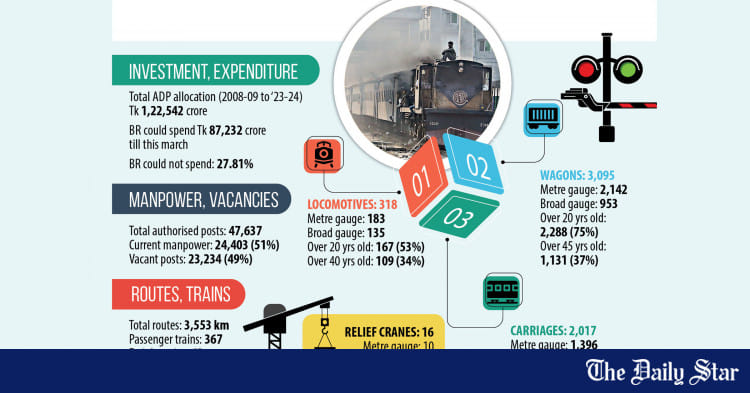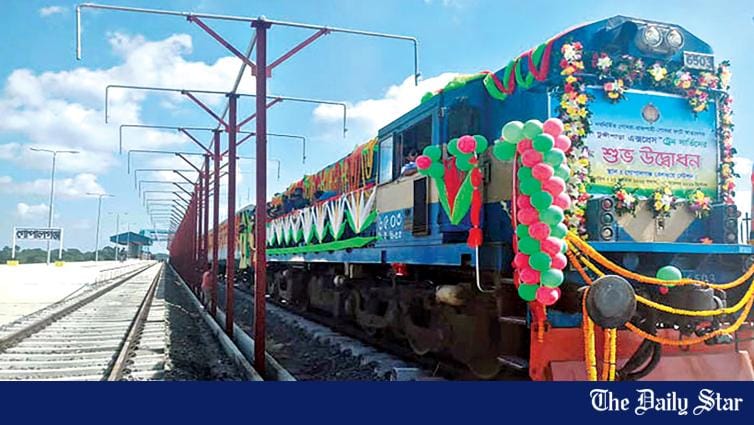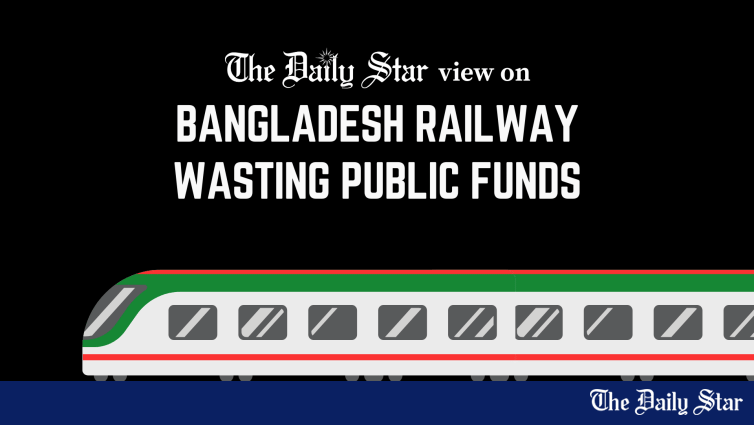Rajbari-Tungipara: A lone train operating on Tk 2,110cr line!
No feasibility study done for the project; 4 stations non-operational
Bangladesh Railway had taken up a project in 2010 to bring Tungipara of Gopalganj under the railway network without carrying out any feasibility study.
The project was completed in 2018, more than five years behind schedule, for Tk 2,110 crore. The cost was almost double the initial estimates. But the BR now operates only one passenger train on Gopalganj-Rajbari-Rajshahi route.
The railway authorities also could not make four stations in this section operational due to a lack of manpower. Several buildings construed for the railway staffers at those stations still remain unused, leading to their decay.
The Implementation, Monitoring and Evaluation Division (IMED) under the planning ministry made these observations in its recently published Impact Assessment Report on the project.
The project was taken up to revive a 75km old line and build a 32km new track at a cost of Tk 1,101.32 crore.
The IMED report said the contractors used oversised stones on the rail track, making the line risky. It also found that a lack of maintenance and unauthorised level crossings are increasing the risks of accidents.
Transport expert Prof Hadiuzzaman said taking up a project without a feasibility study is not a good example.
"It is not possible to know the traffic demand, best locations of stations and the best possible links with roads without a proper study. Investing such a huge amount in a project without a study is questionable," he told The Daily Star yesterday.
As the BR invested money without assessing the traffic demand, they are operating only one train now which is not bringing enough returns for their investment, said Hadiuzzaman, a professor of civil engineering at Buet.
The Tungipara Express, which was launched in 2019, operates from Gobra of Tungipara to Rajshahi via Rajbari.
The BR could have invested this money in other projects if a proper study was conducted beforehand, he said.
A proper study might have suggested that the project should be taken up a few years later, the expert observed.
THE PROJECT
The rail line from Kalukhali of Rajbari to Bhatiapara Ghat of Gopalganj was constructed in 1932 but the line became inoperative in 1997.
The government in 2010 approved a project to revive the 75.5km section and build 32.35km of lines between Kashiani and Gopalganj to bring Tungipara, the birthplace of the father of the nation, under the railway network.
The project was supposed to be completed by June 2013. But it was completed in December 2018 with 330 percent time extension and 91.61 percent cost escalation, shows IMED document.
The IMED report said that the project saw time and cost overruns as it was taken up without a feasibility study.
It also said that nine project directors oversaw the scheme and the frequent changes of PDs hindered its progress to some extent.
The IMED said the rail line is not being maintained properly. Five years have passed since the opening of the rail line, but the BR is yet to deploy waymen (track maintenance workers).
According to the report, three staff quarters were built at each of the five stations but those were degrading as those were unoccupied.
Also, four stations on Kashiani-Gopalganj-Tungipara route remain inoperative due to a lack of manpower.
The stones used on the rail line is 30 to 40 percent oversised and the amount of stones were not adequate, the report mentioned.
Contacted, BR Director General Sardar Shahadat Ali yesterday said he would not comment on the project as he was not the DG when it was taken up.
He said they have shortages of manpower, locomotives and carriages and that's why they cannot make all stations operational and operate more trains on the line.
Asked about the return on investment, he said, "It's true that we are not getting enough return on the investment now. But we will have the expected return when will be able to operate more trains. However, it may take some more time."







